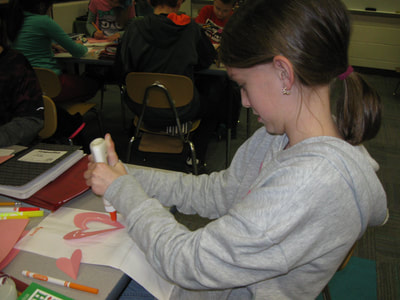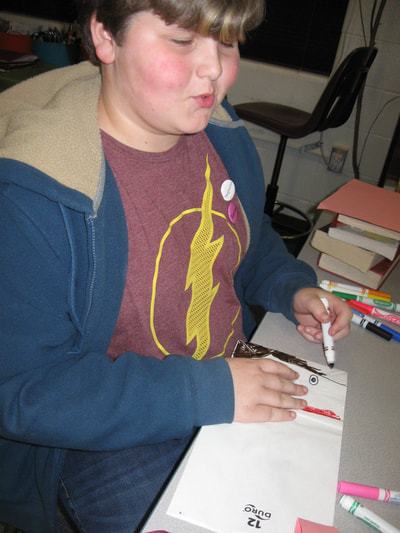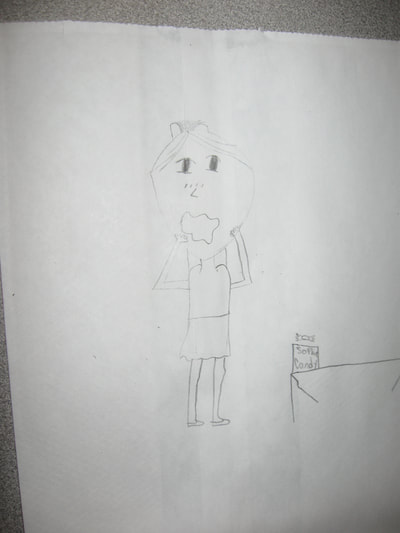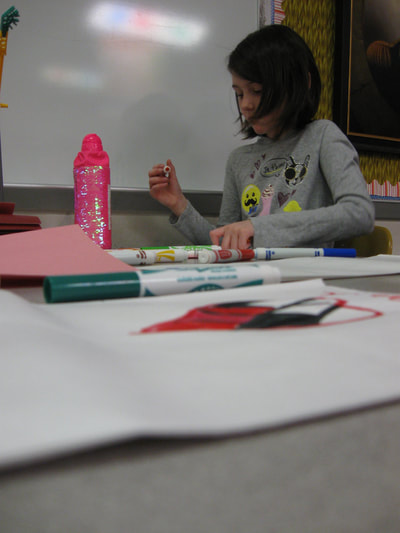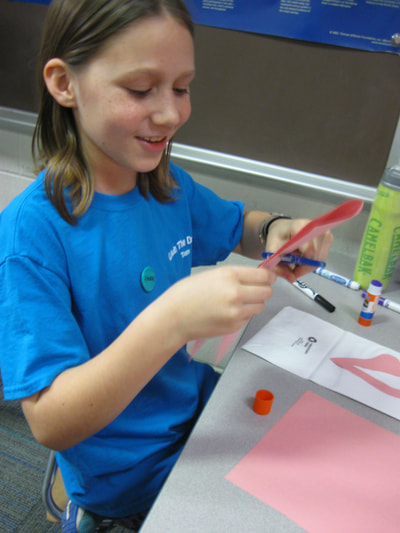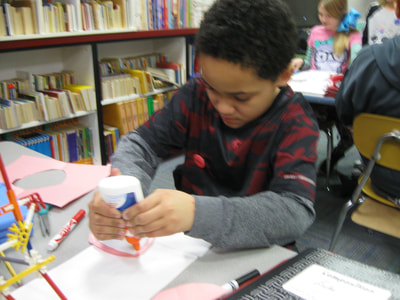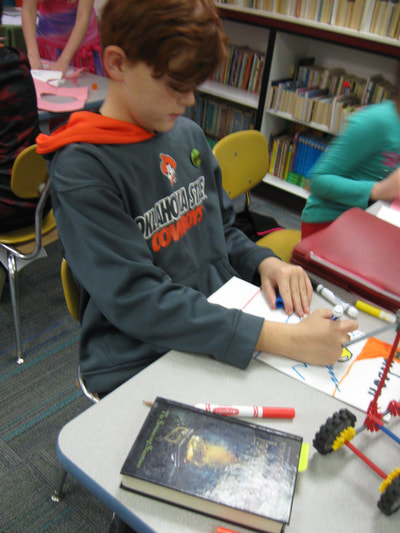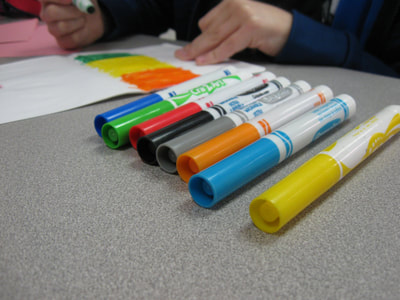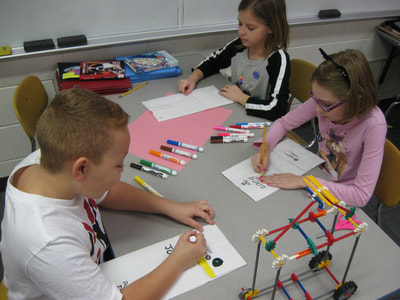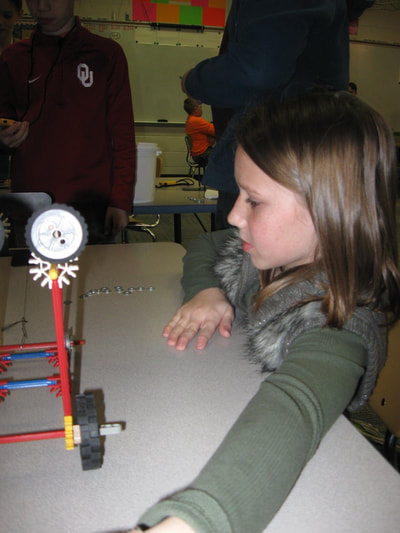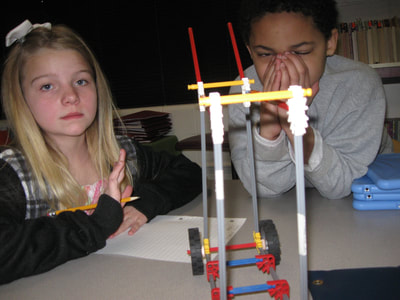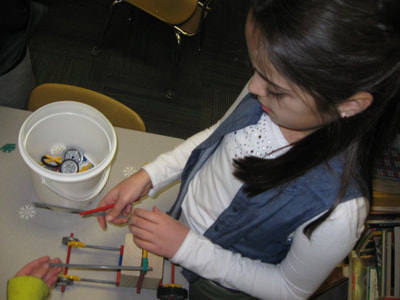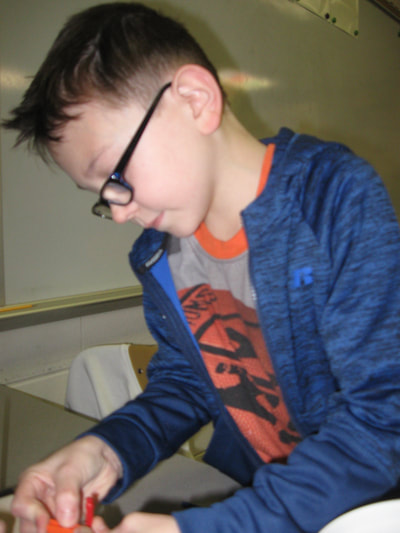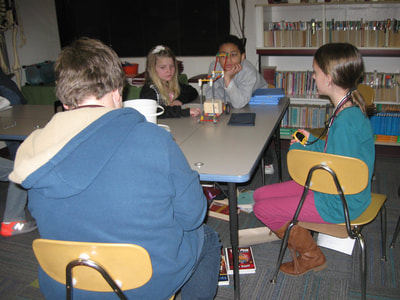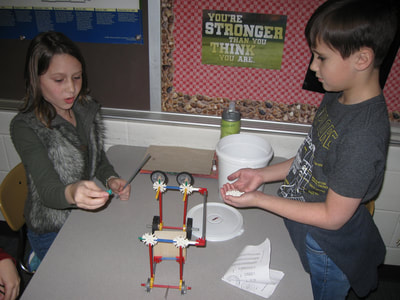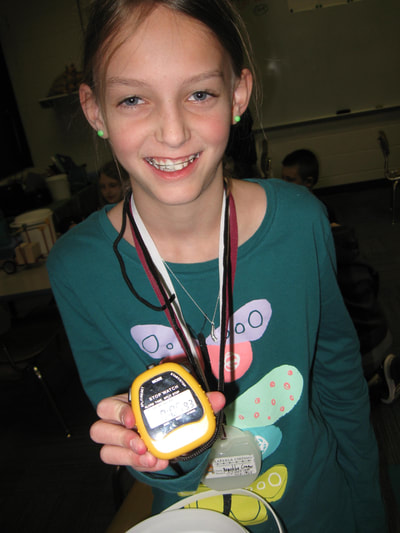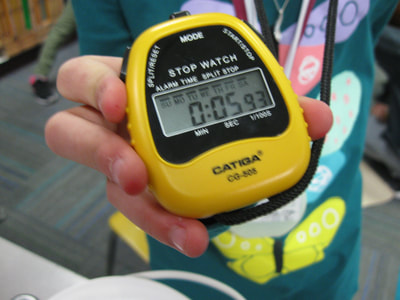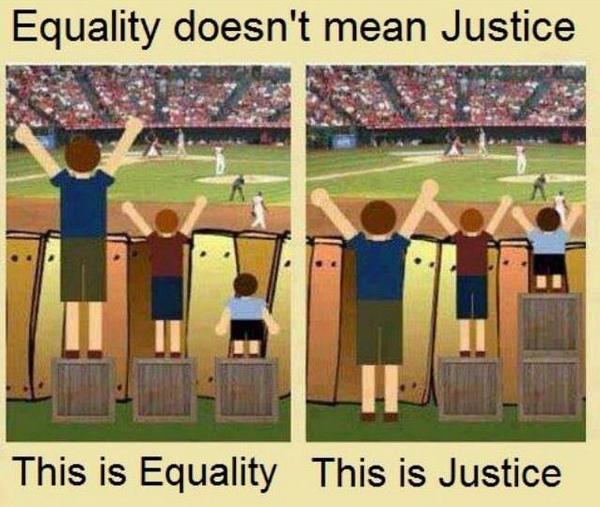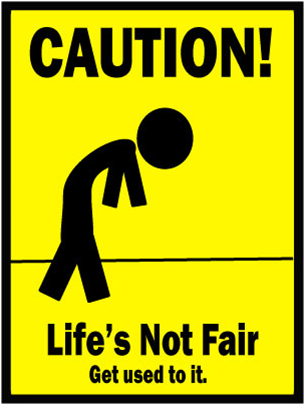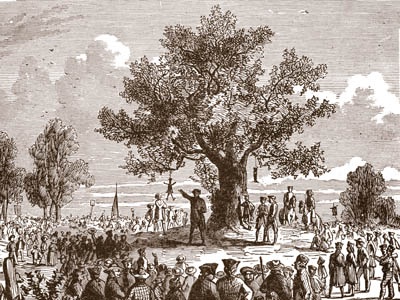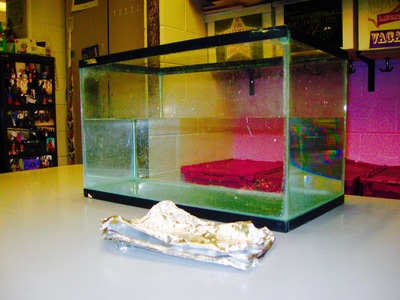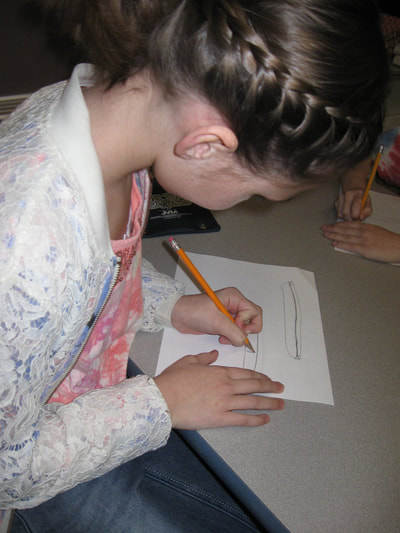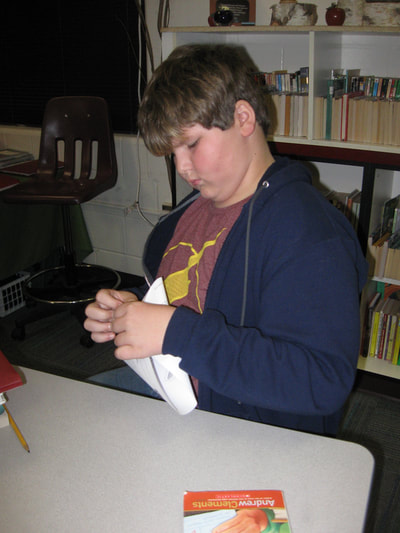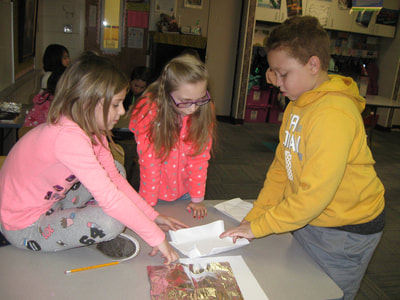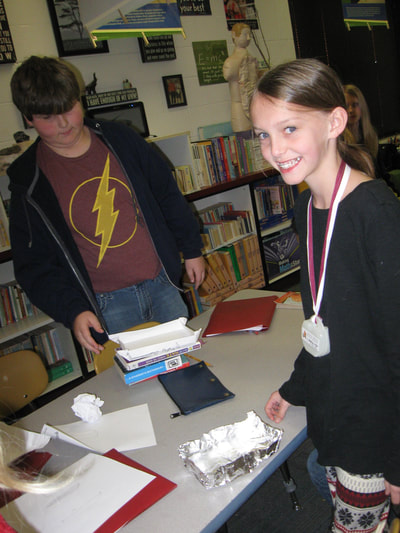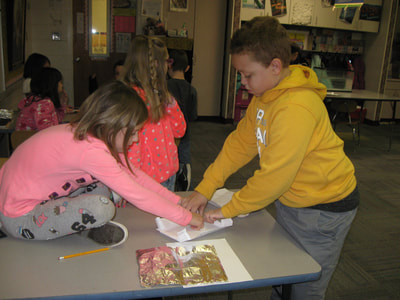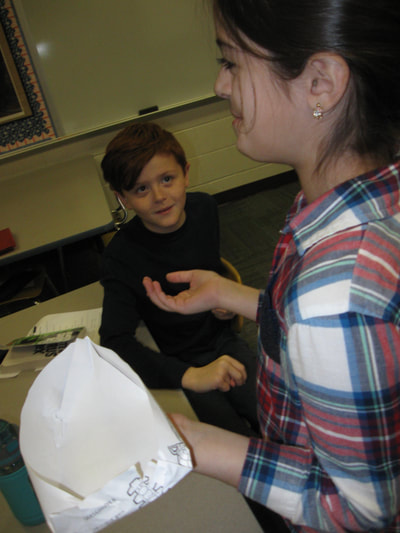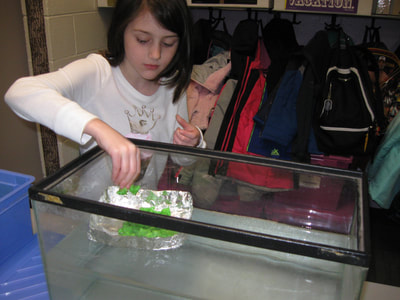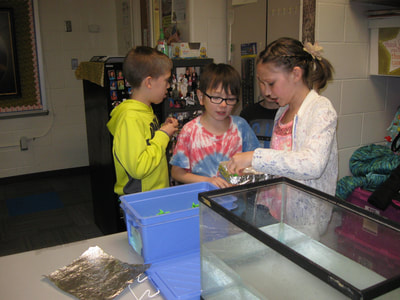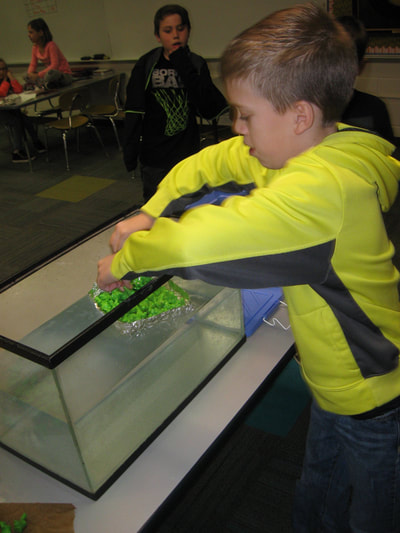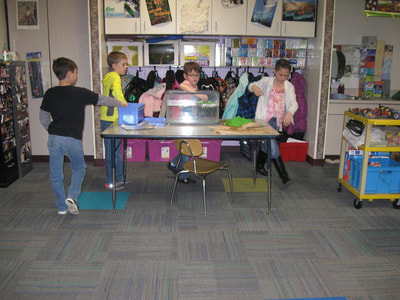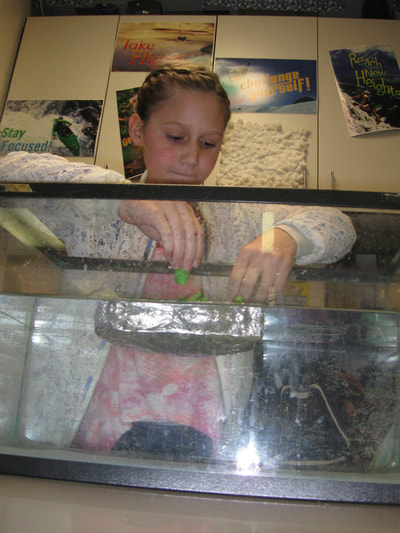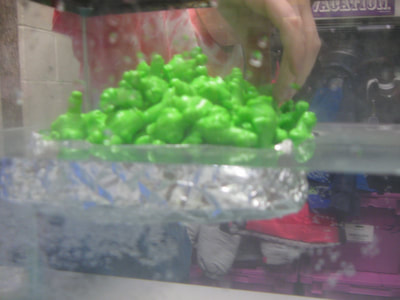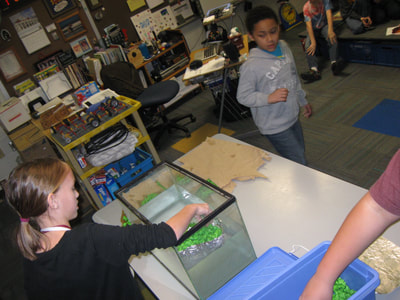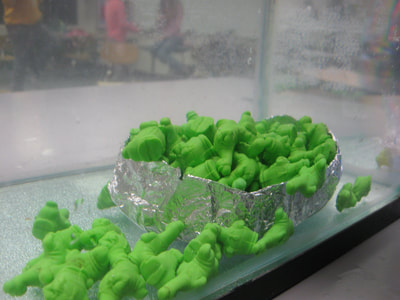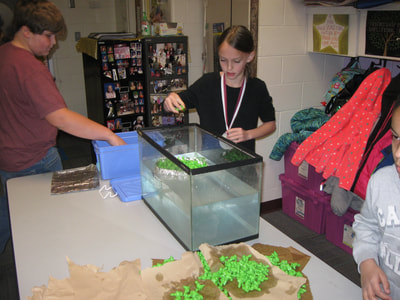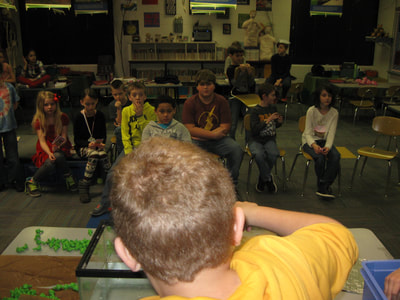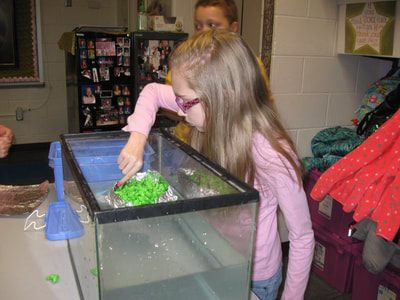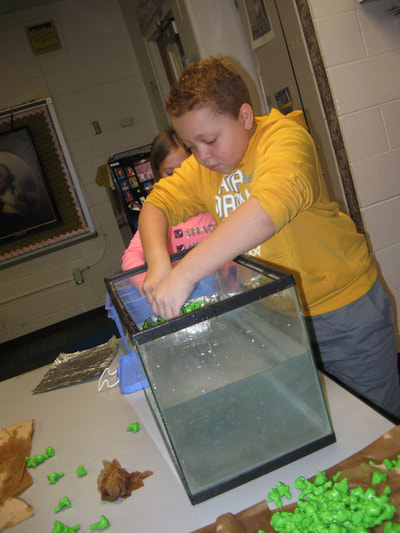| | Students are often called upon to read "chorally". That is, they read together simultaneously as a group. Repeating this practice assists young readers with reading fluency - the speed, accuracy, and inflection of oral reading. Why not, since it's called "choral" reading anyway, actually read the chorus of a song? |
|
0 Comments
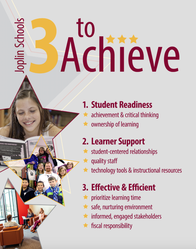 Joplin Schools conducts a survey, every year, to determine public sentiment and preferences for our district (We also conduct a survey specific to our school, but we'll just focus on the district survey for now.). I met with Superintendent Moss, last week, as a part of the superintendent's advisory forum, and we took some time to discuss the latest survey. We compared the last three years of data to identify trends (both positive and negative) and casually offered suggestions as to why those trends occurred. Most of the parent survey was choice rankings in a variety of areas. We spent most of Thursday's meetings exploring the trends in all of those areas, but we were also provided with a list of parent's open ended responses about the district's strengths and suggestions for improvement. In the question about our strengths, parents, thankfully, Relationships with teachers & staff sat first on the list, widely outscoring all other responses. Also at the top of the list were the following:
Those are some great areas to see positive comments! On the other end of the spectrum, parents suggested that we continue to work on the following:
We understand that these responses are pretty open to interpretation, and we can only guess at what each parent may have meant, but at least the district has a base from which to build. It is always interesting to see the same high responses at both ends of the scale, such as Communication, with high numbers perceiving communication as being our strength and others believing it needs to improve. At any rate, it is food for thought as we find ourselves in a district that is no longer being forced into someone else's pattern; the current prevailing attitude is one in which teachers on the front lines make informed decisions - based on individual student and classroom needs and strengths - and find and offer creative solutions. We're thinking romantically, these days. Decorating our valentine bags in anticipation of this week's big party (half-day on Wednesday) has been just about all of the pink paper, glue, scissors, and markers we can handle.
Anyone for tea? that is.
(Liberty) Bell Work
Quick Write: Did you ever stick up for someone?
A Little Comedy
Finally
(Liberty) Bell Work
Quick Write: Tell about what triggers anger in you or someone else.
Speech impediment? Disfigurement? Learning disability? It might make a difference, but you can make an even greater difference when you push through it. Take nine and a half minutes to watch this video: Now for some questions:
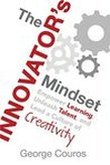 There is a couple of items in the next section of The Innovator's Mindset. We have to think about how we learn - as educators. I've found, in the last few years, that self-reflection (and self-reflection when considering the ideas of others) is a very valuable way of growing. George Couros, author of The Innovator's Mindset, tends to agree: as he considers the idea of digital portfolios, Couros finds that it is more than meditation, but that the motivation comes from a side effect of digital portfolios. I think it's safe to say that a blog serves the same purpose. Couros: I started my own blog to begin, which is a "portfolio" of my learning. I learned about the power of open reflection and how it can deepen learning. When I know everyone can see my work and reflections, it makes me think more deeply about what I'm learning. When considering a public blog/digital portfolio, or when considering making professional posts on social media, one must understand that there can be alternative views. While sometimes I want to be provocative - to create discussion - we must be careful to communicate clearly and make as much sense as we can. The more we can foster conversation, the more we can understand. The least innovative organizations often seem to surround themselves with like-minded people. Innovation often comes from conflict and disagreement, not in an adversarial way but in a way that promotes divergent thinking. The focus is not to go with the idea of one person over another but to actually create a better idea - perhaps one that merges multiple, shared ideas. If you want to be an innovative leader, surrounding yourself with people who mirror your personality is not the way to get there. This is important to understand in communication, as well as leadership. Any leader who surrounds himself with sycophants is doomed to failure. At the same time, leaders can sometimes find it difficult, as yes-men are always there to please, but with selfish motives. Pop stars, actors, and politicians must be able to find people who are willing to be honest. That also means those people, and others (in our case educational administrators) must be able to trust (empower) their inner circle and employees.
Honesty, trust, empowerment - they go a long way to making employees happy, bosses successful, and organizations profitable.  This week, the class took part in the NWEA (Northwest Evaluation Association) test in Language, Reading, and Mathematics. The class really approached this predictive testing with a positive attitude. The NWEA test is intended to be a predictor for the state MAP testing that we administer in the spring. Here are some of my findings when poring over the data: Reading
Mathematics
Language
How does all of this match up with previous years?
MATH 2016: 40% were predicted to achieve proficient 2017: 55% are predicted to achieve proficient Now: 45% are predicted to achieve proficient Actual MAP scores, when they became available, were actually higher than the predicted scores from NWEA, so we are looking for higher levels for this year, as well. If the breaking points remain the same, we could have as high as a 65% success rate in Math, compared to 28% and 57% on the actual MAP test in the last two years. For Communication, the results could reach in the ballpark of 70%, compared to 44% and 78% on the actual MAP test for the last two years). I am certainly hopeful that those numbers ring true, but the MAP test will be slightly different, this year, as well, so we may not be able to make accurate comparisons across the years.
Hear Ye, Hear Ye, Hear Ye!
In Joplin, Missouri, on this magnificent Groundhoggatt Day, February 2nd, 2018, when "the seer of seers, the prognosticator of all prognosticators" is summoned from his burrow in the old oak stump, will he see his shadow and proclaim six more weeks of winter, or will he declare spring just around the corner?
|
AnthemThe Hoggatteer Revolution
is an extensive, award-winning, inimitable, digital platform for Encouraging and Developing the Arts, Sciences, and honest Christianity in the beautiful, friendly LAND OF THE FREE AND THE HOME OF THE BRAVE This site is described as
"a fantastic site... chockablock full of interesting ideas, hilarious anecdotes, and useful resources." 
...to like, bookmark, pin,
tweet, and share about the site... and check in regularly for new material, posted often before DAWN'S EARLY LIGHT! History in ResidenceElementary Schools: Bring Mr. Hoggatt into your classroom for a week of engaging and rigorous history programming with your students. LEARN MORE BUILDING BETTER
|
